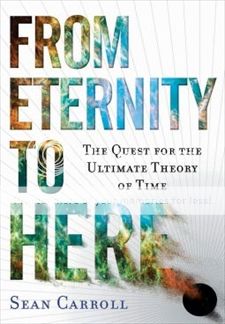
What is time? How does it work? Why is it immutably unidirectional (moving from the past and towards the future)? And most importantly, why does time exist at all? These are among the preeminent metaphysical questions to date for scientists and laypeople alike. Using the principles of entropy and universe expansion since the Big Bang, cosmologist Sean Carroll (recently profiled in the New York Times) hypothesizes about the arrow of time in a brilliant new book From Eternity to Here: The Quest for the Ultimate Theory of Time. In addition to reviewing the book, ScriptPhD.com’s in-house physics and astronomy guru, Stephen Compson, had an extraordinary opportunity to sit down with Dr. Carroll in his physics lab at Caltech University. In a stunningly in-depth, rich interview, they explored everything from the creation of our universe, to entropy, the time-space continuum, how physics and film intersect, and why the principles in Dr. Carroll’s book are important and topical for the general public to grasp. It’s rare to see this wide-ranging of a discussion on popular physics from such an authoritative researcher, so sit back, enjoy and click “continue reading” for more.
I first started writing for this site because I was excited about the relationship between fiction and physics, especially what they both can tell us about the nature of time. From The Time Machine to Groundhog Day, many of our movies have posed questions about moving outside the arrow of time. In another way, the recent popularity of movies with out-of-order chronology, like Pulp Fiction or Memento, have served to make the public more comfortable with non-traditional narratives. Since many of our questions about space and time originate with the work of Einstein, it’s worth mentioning that Virginia Woolf was one of Einstein’s early supporters and publishers in America, and that his work on relativity in turn clearly influenced writers like Woolf, Joyce, and Faulkner (both also published by Woolf at some point). Here in 2010, as we fire up the Large Hadron Collider in Switzerland, it seems that physics is due for another upheaval, which will no doubt have an impact on the way we tell stories.
That’s why I was so excited to get my hands on a copy of Dr. Sean Carroll’s latest book, From Eternity to Here: The Quest for the Ultimate Theory of Time. If you’re a fan of Stephen Hawking’s Brief History of Time, or you find yourself lurking in the physics section of your local book store, or you just want to learn what we know about time, this book is the definitive work of the moment.
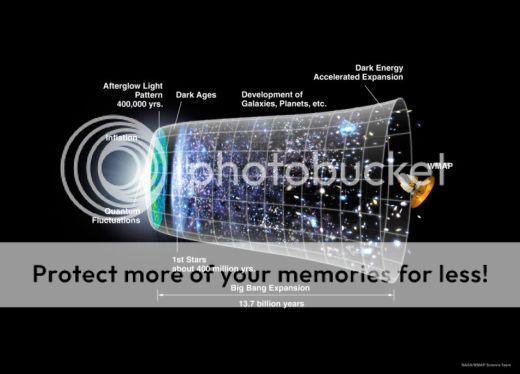
Sean Carroll is a respected professor of cosmology at Caltech University, and the recommendation quotes on the back of his book read like a who’s who of popular physics writing. The book is very readable, and anyone who can follow the byzantine plotline of Lost should be able to understand the ideas he presents. His theory has to do with the concept of entropy, the measure of the orderliness of the universe. Our universe went from a low entropy compressed state before the Big Bang to the expanding state of increasing entropy, in which we now live. The metaphor he often uses in the book is that you can make an omelet out of an egg (or you could drop the egg, or freeze it, or do any number of things), but once that omelet’s been cooked you can’t make it back into a raw egg. From Eternity to Here is an examination of why that is so, why time moves from past to future and not backwards (apparently this wasn’t obvious to scientists!).
The book is also a vehicle for Carroll to throw in his hat on cosmology’s Big Questions of how the universe was formed, how many universes there might be, and why the Big Bang could happen. What makes his work accessible to the armchair physicist is that he roots his ideas in examples you can find in your own kitchen and in diverse selections from popular culture, everything from science fiction to Dumb and Dumber.
As you’ll see in my interview with Dr. Carroll below, physicists today are struggling with the same questions about fate and free will that made Spiderman go emo. I tried to pin Carroll down on the answer, but he’s got better moves than Spidey when the conversation starts to turn toward the philosophical. Also, when you’re trying to ask a scientist at the top of his field about his work, chances are you’re going to assert something stupid in your questions at least once. I managed to do that about four times. But he answered the questions without making me feel like a complete idiot, which is, I think, what the book really does well. It’s informative without condescension (as Hawking’s work can sometimes feel). Carroll even manages to be funny (for a scientist). As physics marches forward to the tune of the Large Hadron Collider, we’ll need more books like From Eternity to Here to keep up with the research.
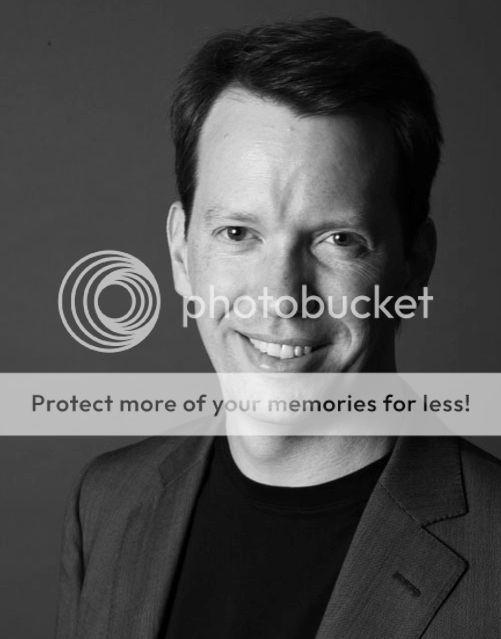
Interview With Sean Carroll:
ScriptPhD.com: How would you define Cosmology?
Sean Carroll: Cosmology is the study of the whole universe all at once. Cosmology looks at the big picture of what the universe is made of, where it came from, and how it’s been evolving.
SPhD: Your book deals a lot with time and with entropy, and dances around the issue of. Where does From Eternity to Here leave us in terms of our free will and what physics can tell us about that?
SC: I’m trying to reconcile the fact that physicists think there are laws of nature which are never broken and we obey those laws, but on the other hand we think that we’re able to make choices. I think both views are compatible with each other. The point is that we don’t know as much about the future as we know about the past. With the past we have a feeling that it’s set in stone, and that has to do with the fact that the entropy was lower, but the future is unknown to us. I think that’s the reason why we can feel and act as if we have free will.
It makes sense to think of ourselves as beings that have choices to make, because, even if all the pieces that we’re made of, all the particles and atoms and so forth, obey the laws of physics, we don’t know the state of all those particles. It makes no difference what those particles are doing because we don’t know, so we can act as if we have free will, and at the same time obey the laws of physics.
SPhD: Your book draws on examples from movies and TV shows. Are there any works in popular culture that come close to conveying our actual understanding of time and the universe?
SC: That’s a hard question. There are plenty of works that play with our understanding. My favorite is probably the movie Memento, by Christopher Nolan, it’s not science fiction but it uses time in a very interesting narrative technique, with flashbacks and reverse chronology. There’s also TV shows like Lost where you have time travel and alternate realities. They’re not trying very hard to stick to the laws of physics, but they’re trying to be logical and consistent. I wouldn’t turn to movies or TV shows to learn about how physicists think of the nature of time, but they’re certainly very useful in prodding us to think about time in imaginative ways.
SPhD: What do you make of the idea that American movies often boil down to a question of fate versus destiny?
SC: I think it’s a classic dilemma, are we fated to do something or do we have choices in the matter? And the laws of physics have the same dilemma built into them, on the one hand, we all obey the laws of physics, on the other hand we think we can make choices. I don’t think that the large-scale choices that we make are in any way fated, I was not destined to become a physicist. But if I knew the velocities and positions of every particle in the universe, I could figure it out. It makes a great dramatic tension to feel that something is inevitable and watch the hero fight against that.
SPhD: Quantum mechanics tells us that there is something to the act of observing the positions and velocities of those particles, would you say that if you had observed all the particles that you might miss your chance to become a physicist?
SC: Quantum mechanics makes things more complicated because it says that when we observe something, we can’t know exactly what it is we’re seeing, we can only observe the probability of something happening. I don’t think that changes the basic story because we don’t know the whole system so it doesn’t really matter anyway. Large scale human activities are impossible to predict in practice even if they could be perfectly predictable in principal.
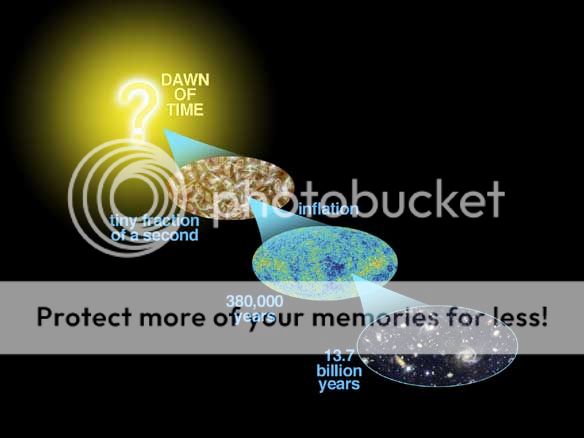
SPhD: Do you think that our existence as intelligent beings is a cosmic accident? And would you consider that to be a low-entropy result?
SC: That’s a very interesting question, actually. Entropy goes up as the universe evolves, but simplicity and complexity are harder to predict and understand. The universe starts out very simple, and it’s going to end very simple. The complexity happens in between. There are senses in which the existence of complexity in our current universe arises because entropy is increasing. When entropy was very low there was no complexity, once entropy hits its maximum value there will be no complexity, but in between interesting things can happen. So I don’t think it’s crazy to wonder if the existence of life and consciousness arose because entropy is increasing. A lot of details still need to be worked out around that, but something like that might be on the right track.
SPhD: In your LA Times Interview, you talked about how many of your colleagues take the progression of time from past to future for granted because that’s the way it works in our universe. It reminded me of the geocentrist debate, where we want to see ourselves as the center of things because this is the universe we live in, so of course it must be that way. What can we learn from the mistakes scientists have made in the past, and what do we have coming up in terms of experiments that will shed new light on cosmology?
SC: My own personal philosophy about that is that we need to remove ourselves from the universe that we are actually in and ask ourselves what we think the universe should be like if we couldn’t make any direct observations. Let’s say we knew the laws of physics, but we didn’t know the configuration of the universe, there’s no reason from that thought experiment that we would end up with something like the Big Bang, there’s no model that could predict something like that, yet. We’re not on the verge of answering that question, that’s a hard question. We’re still groping our way towards some better ideas, but we’re doing lots of experiments that should help us out. We’re doing cosmology experiments, learning more about the background radiation that’s left over from the Big Bang. We’re doing particle physics experiments, the Large Hadron Collider in Geneva hopefully will teach us something about the laws of physics that we don’t know yet. So it’s not a short term project, it’s a long-term project, but the important thing is that we’re absolutely making progress.
SPhD: The LA Times also asked you if God exists in a multiverse and you said we shouldn’t need God to explain physical phenomena. If some being in the multiverse did create our low-entropy universe, could we distinguish that being from what we think of as God?
SC: I’m not sure how you would ever know that that’s what happened. There’s no reason to think that it can’t be explained by purely material things going on. Scientists like to look for the simplest possible theory that fits the data, and we don’t have that theory yet in cosmology, but there’s certainly nothing in the structure of our theory that indicates that we won’t be able to get a purely physical theory of everything.
SPhD: If either a Being or physical phenomena did create our universe in its low-entropy state, what kind of energy would it take to accomplish that task?
SC: The good news is you don’t need that much energy to create the universe. One of the secret lessons of general relativity, Einstein’s theory of gravity, is that if the universe is closed—it sort of curls back on itself—the total energy of the universe is zero. That seems crazy to us because there’s a lot of stuff in the universe, but the positive contributions to energy and the negative contributions to energy exactly cancel, as long as the universe is closed. So to make a new baby universe, to take the old space-time and pinch off an entirely new space-time, costs no energy at all. That doesn’t mean it’s easy to do, it just doesn’t require a lot of resources to do it.
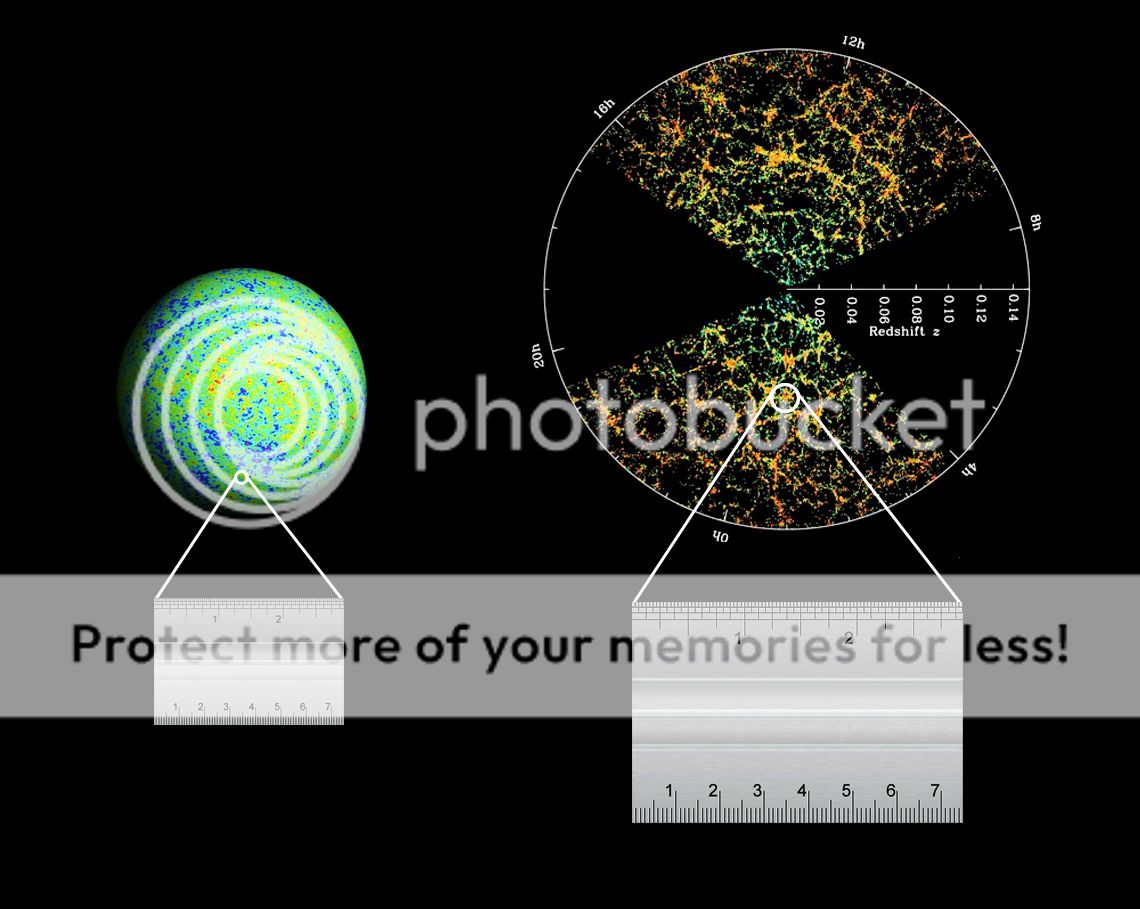
SPhD: If the speed of light remains constant throughout space-time, shouldn’t it be possible for us to map the expansion of the universe with the history of light?
SC: That’s basically what we do. We take light that you can observe today coming from different sources, and those sources are of different ages because they’re at different distances. The far away ones are much older, have emitted their light long ago, and the closer ones have emitted their light more recently. That spectrum of time is actually very useful to us, if we only saw the universe as it exists today, in some sense we would know less. This way we can actually see back into the past.
SPhD: Do you think we’ll eventually have a complete map of our universe?
SC: We won’t ever know everything there is to know about our universe simply because, given that the speed of light is a finite number, there will always be some things that the universe won’t let us see, they’re simply too far away. The best we can hope to do is to put together a schematic picture that makes sense of the part of the universe that we can see. It won’t ever be complete, there will always be more to learn and more to figure out, but we should be able to understand the basic outline of the universe in which we live. We’re not there yet.
SPhD: What do you think of film’s potential as a four-dimensional mapping tool?
SC: In the CGI era, you get to choose every single pixel that appears on your screen. I think visualization of space and time is certainly something we can do, but I don’t know that it’s been exploited anywhere near to what it could be. Flying through galaxies is nice, but it’s very hard to get the evolution of the universe right. We always want to show a picture of the universe from the outside, but we’re stuck inside. I hope that with technology we can put together representations of the universe from the inside, where you can see it expanding and get a more intuitive, hands-on feel for what’s going on.
SPhD: Since you mentioned Memento, how do movies that invert technology lay the groundwork for our understanding of space-time?
SC: There’s something very interesting about how we tell stories. Narrative certainly has the arrow of time, earlier things first, later things later, and that’s not always respected [by the storytellers]. Stories are told through some funny time order, and that’s always done with some purpose, it’s challenging our assumptions for interesting reasons. Because of physics, and because of entropy and the arrow of time, we have this idea that the past moves to the future in a certain way. That the effect comes second and the cause comes first. It goes both ways, you can understand a little bit about how the narrative techniques work by understanding how the physics work, but you can also appreciate going into the physics and where it comes from in some way by really trying to wrap your mind around some of the more interesting narratives out there.
SPhD: It seems that entropy is in some way dependent on decisions made by the observer. As we follow our world lines and make decisions, aren’t we actually decreasing entropy within our light-cones?
SC: That’s not true, actually. There’s a confusing discussion about how dependent on individual observers entropy is, and that’s partially because there’s more than one definition of entropy. One way of defining entropy is by measuring how much you don’t know about a system, but clearly that’s not something we could physically understand. But there’s also a definition of entropy that has nothing to do with our knowledge: that the universe can be in a more likely configuration or a less likely configuration. We human beings are unusual structures in the universe because we attempt to create a little bit of order around us, we attempt to remember things, to organize our local environments. But the way that we do so greatly increases the entropy of the universe as a whole. We spread out a lot of extra entropy into the universe by our activities here on earth. We are not anywhere near equilibrium, a state of very high entropy, but if the environment were anywhere near high entropy we would not be here.
SPhD: Why is that?
SC: What we think of as life, environments and information processing and metabolism, depends on the fact that entropy is low, overall. If entropy were high, nothing would happen, so we would not be able to organize our lives better. We can make our environment orderly by increasing the entropy of the universe, but if the entropy of the universe were already at its maximum we could not create order.
SPhD: Why did you write this book? Why is it important that the public understand cosmology?
SC: Time is something that a lot of people can relate to. We use time every day in our lives, and the amazing thing to me is that the way that time works is really dependent on the universe itself, dependent on the Big Bang. We’re all sort of living in the aftermath of that influential event. It’s a great route to thinking about some big ideas, some big abstract concepts that are still grounded in things that everyone can understand.
SPhD: What would you say is the thinnest part of your argument?
SC: The major point of the book, that the arrow of time ultimately depends on cosmology and conditions near the Big Bang, is ultimately solid. That’s something that, not everyone agrees, but they should agree. The puzzle, then, is why was it like that? Why did the early universe have such a low entropy? I don’t think we know very much about that yet, I have my favorite idea and it’s in the book, but I’m not wedded to that idea, I think we have a long way to go before we can be confident. We have a good handle on the problem, we don’t have a good handle on the solution yet.
SPhD: Experimentally?
SC: It has to be a give and take between experiments and theory. We don’t know what experiments to do until we have a theoretical basis to ask questions, but we don’t know which theories are right until we have experiments to test them.
SPhD: What’s the single project in physics that you’re the most excited about today?
SC: As a theorist, I’m trying to figure out what happened around the time of the Big Bang. I think that’s plausible, we can really talk about it sensibly now whereas fifty years ago we couldn’t ask that question. So I’m hopeful, but it’s a hope based on optimism, not an experimental basis, yet. Experimentally I think it’s all about the Large Hadron Collider, that’s no secret. We don’t know what it’s going to tell us. One of the things about physics experiments is that we don’t know what the answers are ahead of time. But we’re looking into a space which is unknown, which we haven’t looked at before, so the chances are we’re going to find something surprising.
For you physics nerds that just can’t get enough space-time continuum jabber, we recommend Sean’s one-hour TED Talk lecture at the University of Sydney on nature of time, the origin of entropy, and how what happened before the Big Bang might be responsible for the arrow of time we observe today. Part I and Part II.
Stephen Compson studied English and Physics at Pomona College. He writes fiction and screenplays and is currently working toward a Master of Fine Arts at UCLA’s School of Theater, Film & Television.
~*Stephen Compson*~
************************
ScriptPhD.com covers science and technology in entertainment, media and advertising. Hire our consulting company for creative content development.
Follow us on Twitter and our Facebook fan page. Subscribe to free email notifications of new posts on our home page.